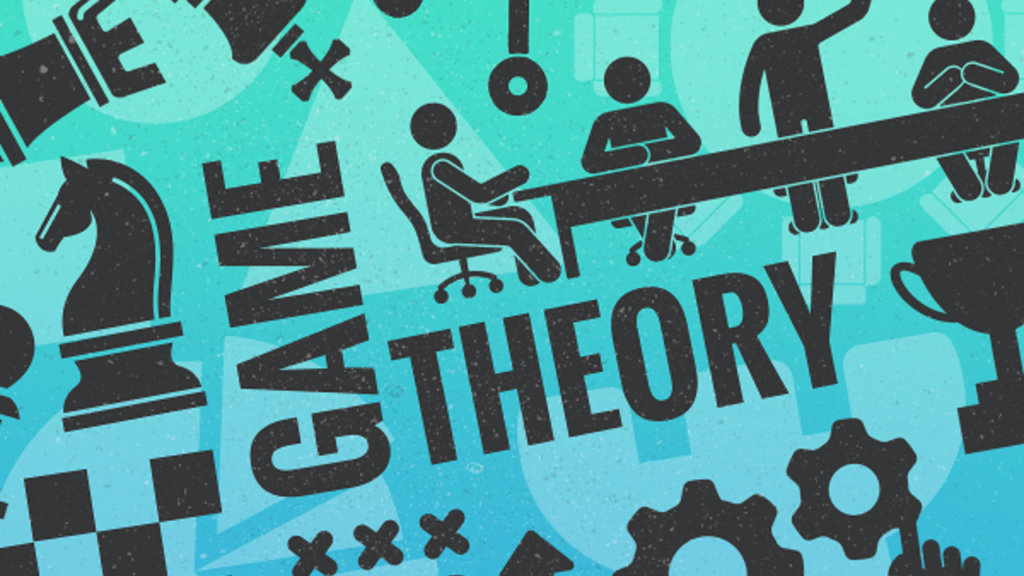The Role of Game Theory in CS:GO

Introduction:
Game theory is a discipline that has been widely applied in various fields, including economics, politics, and psychology. In recent years, it has become increasingly popular in the world of gaming, particularly in the realm of esports. One such game that has seen a significant impact from game theory is Counter-Strike: Global Offensive (CS:GO). This first-person shooter game requires players to work together as a team to defeat their opponents by completing various objectives.
The role of game theory in CS:GO can be viewed from two main perspectives – strategies and decision-making, and competitive gameplay and team dynamics. The former focuses on how players develop tactics that maximize their chances of winning matches. This involves analyzing the strengths and weaknesses of both teams, predicting opponents’ moves, and adapting accordingly.
The latter perspective looks at how players interact with one another during matches. Teamwork is crucial in CS:GO since every player’s actions affect the entire team’s performance. Therefore, understanding team dynamics is critical for developing effective strategies.
This essay will delve into these two aspects in greater detail to explore how game theory has impacted the world of CS:GO. Through examining different scenarios where game theory principles are applied to gameplay situations, it will become clear how this discipline can help gamers make better decisions and ultimately improve their performance on the virtual battlefield.
Strategies And Decision-making:
The strategies and decision-making processes involved in CS:GO are crucial to the success of any team. Game theory plays a significant role in this aspect of the game, as it provides a framework for understanding how players make decisions and how those decisions impact the outcome of a match. One key strategy in CS:GO is to identify your opponent’s weaknesses and exploit them. This requires careful observation and analysis of their gameplay, as well as an understanding of their tendencies and habits. By using game theory principles, players can develop more effective strategies for exploiting these weaknesses, such as by adjusting their play style or positioning themselves strategically on the map.
Another important aspect of decision-making in CS:GO is resource allocation. This includes deciding which weapons to buy, when to use grenades or other equipment, and how much money to spend on upgrades or gear. Game theory can help players make better decisions by providing a framework for analyzing the costs and benefits of different options. For example, if two players are competing for control of an area on the map, they may need to decide whether it is worth spending money on grenades or other equipment that could give them an advantage.
Finally, communication is key to successful decision-making in CS:GO. Players must be able to communicate effectively with each other in order to coordinate their movements and execute strategies effectively. Game theory provides insights into how groups can make better decisions by encouraging open communication and collaboration among team members. For example, if one player has information about enemy movements that could help the team gain an advantage, they should share that information with their teammates rather than keeping it to themselves.
Game theory plays a critical role in shaping strategies and decision-making processes in CS:GO. By providing insights into human behavior and decision-making under uncertainty, game theory helps players develop more effective strategies for winning matches. Whether identifying opponent weaknesses or allocating resources effectively, game theory principles can help teams achieve victory through smart decision-making and strategic planning.
Competitive Gameplay And Team Dynamics:
In the world of competitive CS:GO, gameplay and team dynamics are crucial components that dictate the outcome of a match. The game theory behind these elements is complex and multifaceted, requiring players to not only possess exceptional mechanical skills but also a deep understanding of their teammates’ strengths and weaknesses. Competitive gameplay in CS:GO revolves around strategic decision-making, where every move counts and can have a significant impact on the outcome of the game. Players must analyze their opponents’ playstyles, predict their movements, and develop counter-strategies to stay ahead in the game.
However, individual skill alone is not enough to secure victory in CS:GO. Team dynamics play a pivotal role in determining whether or not a team succeeds or fails. Game theory suggests that individual players must put aside their ego and work collaboratively with their teammates for optimal results. Communication is critical as it allows players to coordinate attacks, share information about enemy positions, and strategize effectively.
Moreover, team dynamics also involve managing conflicts between teammates. In high-pressure situations such as competitive gaming tournaments where emotions run high, disagreements between members can be detrimental to overall performance. Game theory suggests that effective conflict management involves finding common ground between opposing viewpoints rather than simply imposing one’s own opinion on others.
In addition to communication and conflict management skills, successful teams must also possess strong leadership qualities. A good leader understands each player’s strengths and weaknesses while establishing clear goals for the team to achieve collectively. They motivate players by providing positive feedback for good performances while providing constructive criticism when necessary.
Overall, competitive gameplay in CS:GO is heavily influenced by game theory principles related to strategic decision-making and teamwork dynamics. Players who possess exceptional mechanical skills coupled with strong communication abilities are more likely to succeed in this highly competitive environment. However, it is essential for individuals to understand that success ultimately depends on how well they work together as a team rather than solely relying on individual performance metrics.
Conclusion:
In conclusion, game theory has proven to be an invaluable tool for understanding the complex dynamics of competitive gameplay in Counter-Strike: Global Offensive. Through analyzing strategies and decision-making processes, players can gain a deeper understanding of how to outmaneuver their opponents and achieve victory. Game theory provides players with a framework for predicting their opponent’s moves and responding accordingly, leading to more successful outcomes.
Furthermore, game theory also plays a crucial role in shaping team dynamics in CS:GO. Effective communication and coordination are essential for success in team-based gameplay, and game theory offers insights into how best to coordinate efforts towards achieving a common goal. By analyzing optimal strategies for different scenarios, teams can develop more effective tactics and improve their performance.
In conclusion, the application of game theory to CS:GO has revolutionized the way we approach competitive gameplay. Strategies based on rational decision-making have become increasingly popular among players as they seek out ways to gain an edge over their opponents. As such, it is clear that game theory will continue to play a vital role in shaping the future of esports competitions like CS:GO as players strive for excellence through strategic thinking and teamwork. Learn more at csgobook.com.





